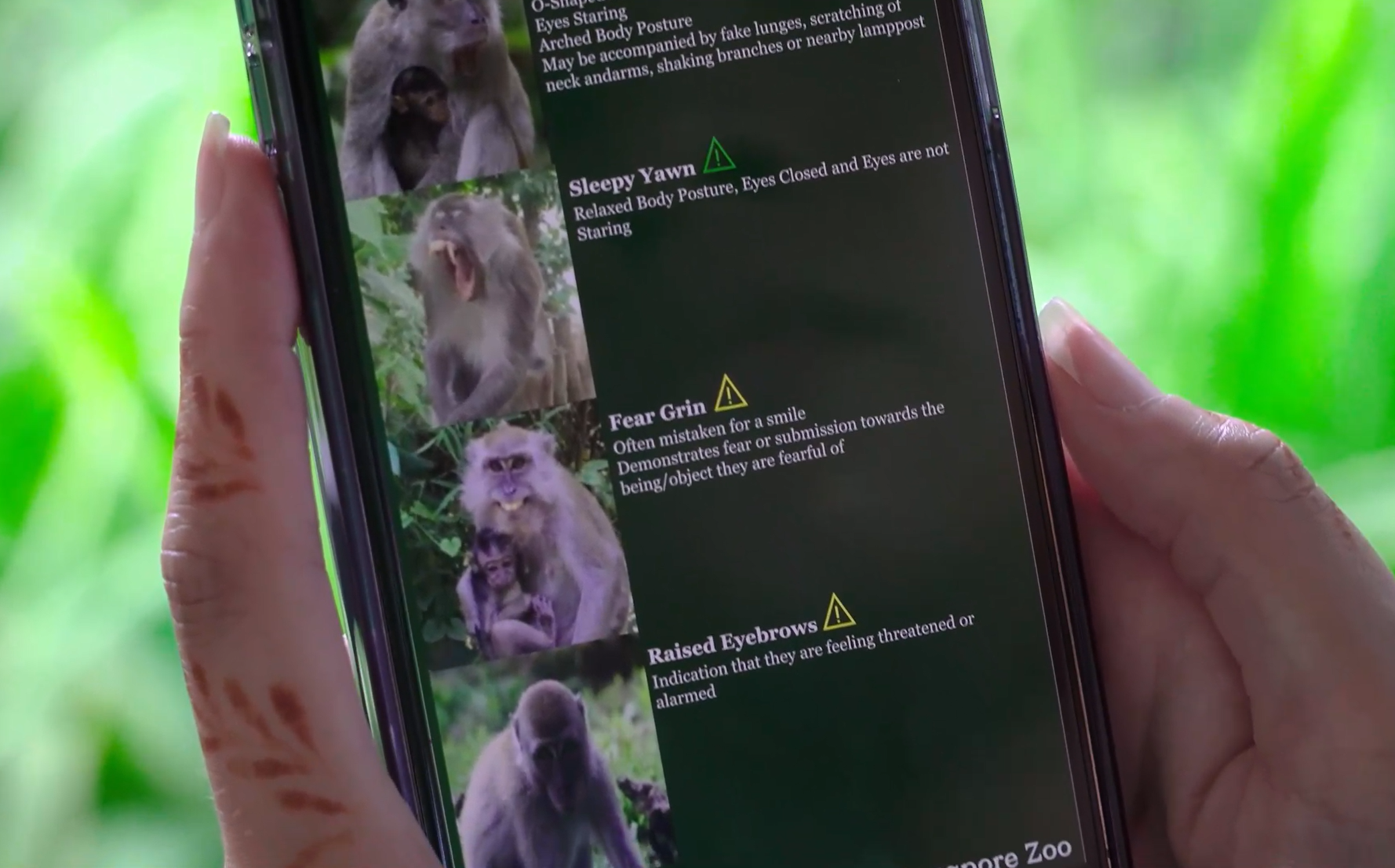Image: Mandai Wildlife Group
“Warning yawn”, “raised eyebrows, “fear grin” – no, these are not the latest slate of emojis coming to the next Microsoft Teams update. They constitute critical vocabulary that the Park Operations team at Mandai Wildlife Group (MWG) use on almost a daily basis, as telltale signs to decipher the behaviour and anticipate the reactions of over free roaming wild macaques that have taken up abode at its four wildlife parks.
Wild macaques have always been in and around the wildlife parks at the Mandai Wildlife Reserve. The varied landscapes of its parks create living environments suitable for a wide range of local wildlife including the macaques. The proximity between these macaques and visitors to the parks poses risks to both groups. Bolder primates have learned how to seize food and drink from their hands, causing undue alarm among park goers and potential danger to young ones. In retaliation, guests have also sometimes used whatever is in their hands to shoo away the creatures, potentially causing injury to the macaques.
Generally, macaques are not dangerous unless provoked. MWG is committed to ensuring the safety of its park visitors, whilst encouraging guests to learn to exist alongside the troops in a safe and harmonious manner. The Long-tailed Macaques are native to Singapore and part of the country’s natural heritage. They also a vital role in keeping the ecosystem healthy.
To this end, the park operations team has been tasked with ensuring that visitors learn how to share spaces safely with native wildlife.
Usually, this entails individual rangers scrambling across the four parks to various spots the moment they get a notification by another ranger that a troop has been sighted in the area. They will then warn visitors not to engage with any of the animals, and to keep food and drinks hidden, or ask guests to move away from the area immediately if the monkey or its troop show signs of aggression.
The process used to be tedious – the team was informed via emails, but usually by the time they have read the email and made their way to the location, the troop might have already moved on, rendering the information obsolete and their actions futile.
Encouraged by MWG’s digital transformation office team, Luqmaanul Hakeem, Executive, Nurul Huda Norizan, Senior Guest Service Officer and Hailey Thng, Senior Guest Service Officer, from Park Operations turned to Microsoft Power Platform to develop an app to help them improve the process. The end outcome was a macaque tracking app that the team can be exceedingly proud of.
The app is an inventory consolidating all the information on the macaques – from a profile of each monkey, down to a family tree, the latest baby additions to each troop , where each troop was last sighted, their habits, behaviors, and preferences.
Each user can update the app with the latest information at any point in time, providing significant convenience to the rangers who no longer need to wait for email notifications to hit their inboxes. It also declutters their phones as all the information is now stored on the cloud drive in an intuitive manner via the app.
With these timely updates on the app, each team member can then determine the level of intervention needed each time a troop is sighted near a visitor locale, based on the monkeys’ known behavioural traits.
In the past, without this inventory of information handy, the team would have needed to depend on sporadic verbal updates from another team member or check some document in their drive that cannot be retrieved as easily, leaving them to do plenty of guesswork about which macaque it is that they’re encountering.
The added accuracy that they get with the app allows them to quickly identify macaques and determine which ones tend to be more protective, or territorial, enabling them to better evaluate and implement the appropriate intervention techniques for the safety of both park visitors and the animal.

